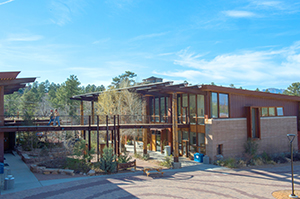Below find the latest graduate assistantships and other funding opportunities posted across the web in the last week in ecology, conservation and related environmental fields.
Master’s Opportunities
MS Student Position: Community Ecology, Landscape Ecology, and/or Ecosystem Ecology
Simon Fraser University | Burnaby, Canada
Program: Resource Management – MS
Study watersheds using geostatistical modeling of ecosystem function, data synthesis, and simulation-based modeling of landscapes and animal movement.
MS Student: Whip-poor-will Ecology and Behavior
University of Illinois at Urbana-Champaign | Champaign, Il
Program: Ecology, Evolution and Conservation Biology – MS
Research the behavior and demography of Whip-poor-wills in Illinois, relying on a combination of nocturnal surveys, radio telemetry, and nest monitoring.
MS Research Assistantship: Fisheries Biology
Iowa State University | Ames, IA
Program: Fisheries Biology – MS
Conduct research evaluating Invasive Carp reproductive success in the Upper Mississippi River.
MS Assistantship: Beaver Dams and Water Quality
Iowa State University | Ames, IA
Program: Forestry – MS
Quantify impacts of beaver dams on nutrient and sediment loading, hydrology, and stream channel morphology within agriculturally-dominated Iowa watersheds.
[cjbn_cta]
Graduate Research Assistants (3): Silver Carp
Murray State University | Murray, KT
Program: Biology – MS
Three assistantships are available to conduct research on Silver Carp in Kentucky Lake. Fieldwork will occur year-round in challenging conditions.
MS Position: Tree Anatomy and Ecophysiology
University of Maine | Orono, ME
Program: Forest Resources – MS
Study xylem anatomy and tree ecophysiology to better understand how climate-change will impact northeastern forest trees.
UMass Graduate Student
University of Massachusetts Amherst | Amherst, MA
Program: Organismic & Evolutionary Biology – MS
Study the effects of soil amendments and pollinator plantings on native bees in log-landings on National Forests in the lower Midwest.
MS Assistantships: Multiple, Ecology and Toxicology
Missouri University of Science and Technology | Rolla, MO
Program: Applied and Environmental Biology – MS
MS Graduate assistants for Spring 2021 in toxicology, aquatic ecology, microbial ecology, microbiology and/or evolutionary ecology.
MS Student: Studying Beaver Mimicry
University of Montana | Missoula, MT
Program: Wildlife Biology – MS
Examine the influence of beaver mimicry on the structure and function of headwater streams and riparian food webs in western Montana.
MS Position: River Ecosystem Responses to Restoring Fish Migrations
Cornell University | Ithaca, NY
Program: Ecology & Evolutionary Biology – MS
Study the ecosystem consequences of restoring fish migrations into tributaries of the Great Lakes.
Graduate Student Assistantships(4): Environmental Education
Southern Oregon University | Ashland, OR
Program: Environmental Education – MS
Responsibilities may include managing the EE Office, developing activities and curricula, managing our Natural Science Kits, or working with area educators and environmental education providers.
MS Assistantship: Ecology of Migratory Ducks
Oregon State University | Corvallis, OR
Program: Wildlife Science – MS
Study the behavior of radio-tagged ducks during spring migration through the Southern Oregon Northeast California (SONEC) region in the Pacific Flyway.
MS Graduate Research Assistantship: Aquatic Turtle Ecology
University of Houston-Clear Lake | Houston, TX
Program: Biological Sciences – MS
Gain valuable field experience collecting environmental DNA (eDNA) and genetic samples, conducting herpetological field surveys and analyzing data directly related to species conservation and wildlife management, particularly related to Western Chicken Turtles and Alligator Snapping Turtles.
MS Assistantship: Urban Avian Ecology and Community Science
University of Texas at San Antonio | San Antonio, TX
Program: Biology – MS
1.Lead efforts to evaluate the effects of backyard bird feeding on the movements of birds in urban areas as part of a community science approach.
2. Assist with the recruitment of community scientists, especially through local schools.
3. Assist in the development and implementation of research instruments to evaluate the integrated model.
MSc Position: Research in the Ecology and Evolution of Carnivorous Plants
Texas Christian University | Fort Worth, TX
Program: Biology – MS
Work on projects related to the ecology and evolution of the pitcher plant, Sarracenia alata.
MS Position: Behavioral Ecology and Conservation
William & Mary University | Williamsburg, VA
Program: Biology – MS
Recruiting new research Masters students in areas of behavioral ecology and applied conservation science, to start in Fall 2021.
MS Position: Walleye-Salmonid Interactions in Wyoming Reservoirs
University of Wyoming | Laramie, WY
Program: Zoology & Physiology – MS
Evaluate the walleye consumption of stocked salmonids through diet and stable isotope analyses and bioenergetic modeling.
Master’s & Doctorate Opportunities
MS or PhD Graduate Research Assistant
Auburn University | Auburn, AL
Program: Fisheries – MS
Examine the interactions and spread of native and non-native crayfishes. The position requires rigorous field sampling and developing relationships between the distribution of native and non-native species.
Graduate Assistantships: Metabolic Ecology, Biodiversity or Macroecology
University of Kentucky | Lexington, KT
Program: Biology – MS
Potential themes include
1. Metabolic theory of life history including field and comparative
studies
2. Biogeography and conservation of island and montane biodiversity
3. Urban biodiversity and the importance of scale
4. Human macroecology and sustainability.
Interdisciplinary MS or PhD: Conservation Science
University of Maine | Orono, ME
Program: Wildlife Ecology – MS
Integrate biophysical and social sciences in collaborative, engaged, and solutions-driven research, professional development, and coursework on resilient conservation of natural resources.
MS or PhD Position: Study Habitat Management in Michigan Prairie Fens
Central Michigan University | Mount Pleasant, MI
Program: Biology – MS
Design, implement, and assess habitat management in prairie fens with the goal of maintaining and growing populations of Poweshiek skipperling.
Doctorate Opportunities
PhD Position: Modeling Extrinsic Factors in Shaping Forest Dynamics
University of Alabama | Tuscaloosa, AL
Program: Biological Sciences – PhD
Use process models to evaluate the importance of various extrinsic factors in shaping forest dynamics and quantify linkages among possible drivers (climate, edaphic conditions, management, and disturbance) and outputs (forest composition and structure, biomass pools, C, water, nutrient, and energy fluxes).
PhD Assistantship: White-Tailed Deer Movement and Social Structure
Trent University | Ontario, Canada
Program: Environmental and Life Sciences – PhD
Work on a large, multi-faceted field project with the primary focus on quantifying potential spread of chronic wasting disease in Ontario’s landscapes.
PhD Position: Marine Movement, Diet and Nutritional State of Nunatsiavut Arctic Char in a Changing Climate
Memorial University of Newfoundland | St. John’s, Canada
Program: Physics and Physical Oceanography – PhD
Study char marine movement patterns as determined by biotelemetry, and the linkages with seasonal changes in diet and nutritional status as determined by amino acid stable isotope and fatty acid analyses.
PhD Student: Entomology and Wildlife Ecology
University of Florida | Gainesville, FL
Program: Zoology – PhD
Investigate the efficacy of spatial repellents (and other interventions) to protect white-tailed deer fawns from flies that transmit pathogenic Orbiviruses (Epizootic Hemorrhagic Disease Virus and Bluetongue Virus).
PhD Position: Evolutionary Biology
University of Florida | Gainesville, FL
Program: Zoology – PhD
Study the evolutionary interplay of behavior and morphology, often focusing on sexual selection.
PhD Position: Grassland Ecosystem Services and Climate Resilience
University of Florida | Gainesville, FL
Program: Interdisciplinary Ecology – PhD
Focus on managed grasslands in Florida where prior research has revealed long-term enrichment of phosphorus in soils, which, especially when interacting with extreme precipitations, could compromise downstream water quality and associated ecosystem services.
[newsletter-signup]
PhD Research Assistantship: Fisheries Biology
Iowa State University | Ames, IA
Program: Fisheries Biology – PhD
Research will evaluate the ability of physical barriers to mitigate the escapement of Walleye and Muskellunge from reservoirs.
PhD Positions (2): Harmful Algal Blooms Effects on Fisheries and People in Lake Victoria
Cornell University | Ithaca, NY
Program: Ecology and Evolutionary Biology – PhD
Study of how harmful algal blooms affect fisheries from human, fish, and ecosystem perspectives.
PhD Assistantship: Wildlife Genomics
North Carolina State University | Raleigh, NC
Program: Fisheries, Wildlife, and Conservation Biology – PhD
Study urban and disease adaptation in raccoons and eastern woodrat genomics.
PhD Position: Quantitative Human Dimensions of Wildlife – Valuation of Wildlife Management Areas in the Southeast
North Carolina State University | Raleigh, NC
Program: Fisheries, Wildlife, and Conservation Biology – PhD
Estimate the market and non-market value of wildlife management areas by studying how they impact tourism, real-estate values, and ecosystem services in the southeastern United States.
PhD Assistantship: Rangeland Wildlife Ecology
North Dakota State University | Fargo, ND
Program: Range Science – PhD
Investigate the influence of four different grazing management practices that vary in the spatial and temporal use of fire and grazing on the habitat quality of breeding songbirds.
PhD Position: Arctic Food Web Ecology
UiT The Arctic University of Norway | Tromsø, Norway
Program: Arctic and Marine Biology – PhD
Research focus of the 3-year post-doc position is on food web ecology of the seafloor ecosystem in the northern Barents Sea and adjacent Arctic Basin. The approach will include use of trophic markers such as stable carbon and nitrogen isotopes and fatty acids.
PhD Position: Marine Mammal Reproductive Biology- South Texas
Texas A&M University Corpus Christi | Corpus Christi, TX
Program: Marine Biology – PhD
use innovative techniques to explore the biomechanics of genital and sperm interactions in cetaceans.
PhD Research Assistant: Wildlife Ecology
Utah State University | Logan, UT
Program: Wildlife Biology – PhD
Develop a bioenergetic model for Great Salt Lake and its marshes that can compare energy needs of avian populations to energy production by GSL habitat.
PhD Assistantship: Amphibian Disease Ecology
University of Vermont | Burlington, VT
Program: Natural Resources – PhD
Research community disease ecology in an amphibian system. While the general theme of the project is defined, the successful candidate will co-develop research questions based on their interests.
PhD Position: Energy Flow through Great Lakes Food Webs
University of Wyoming | Laramie, WY
Program: Ecology – PhD
Design and conduct research to quantify the relative importance of multiple energy pathways to Great Lakes prey fish.
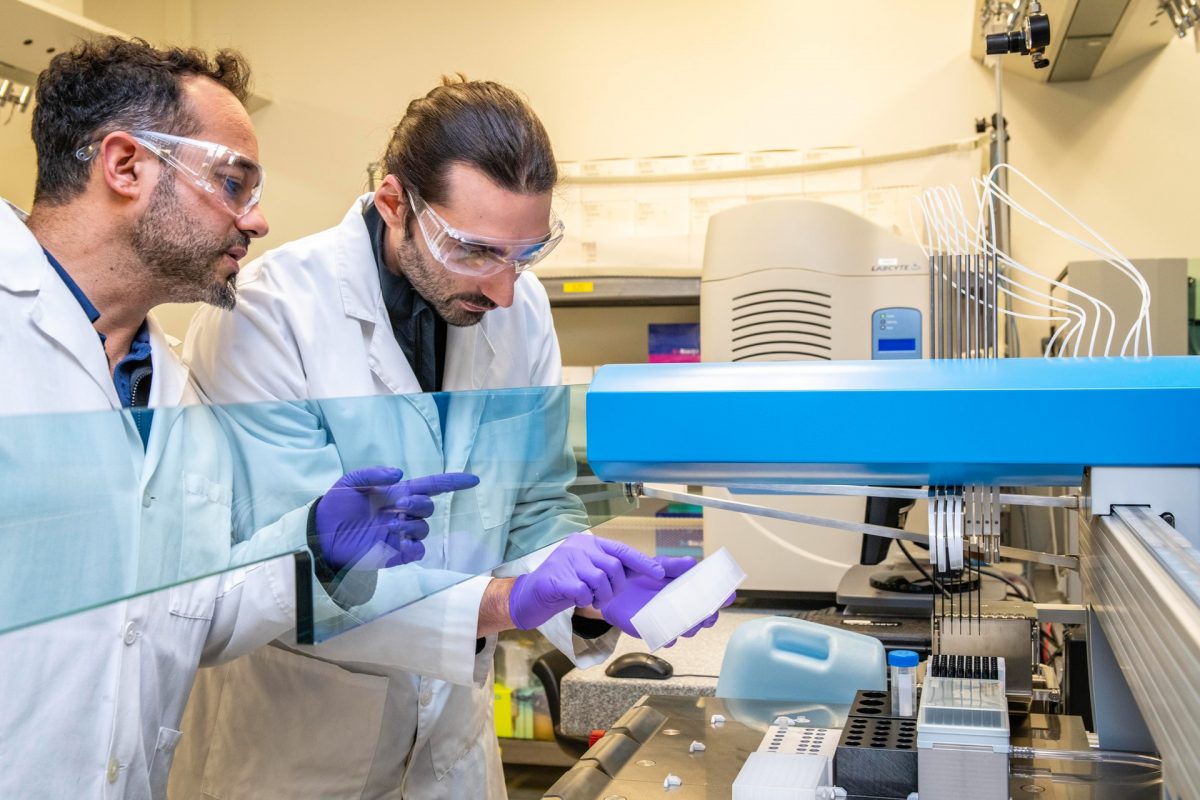
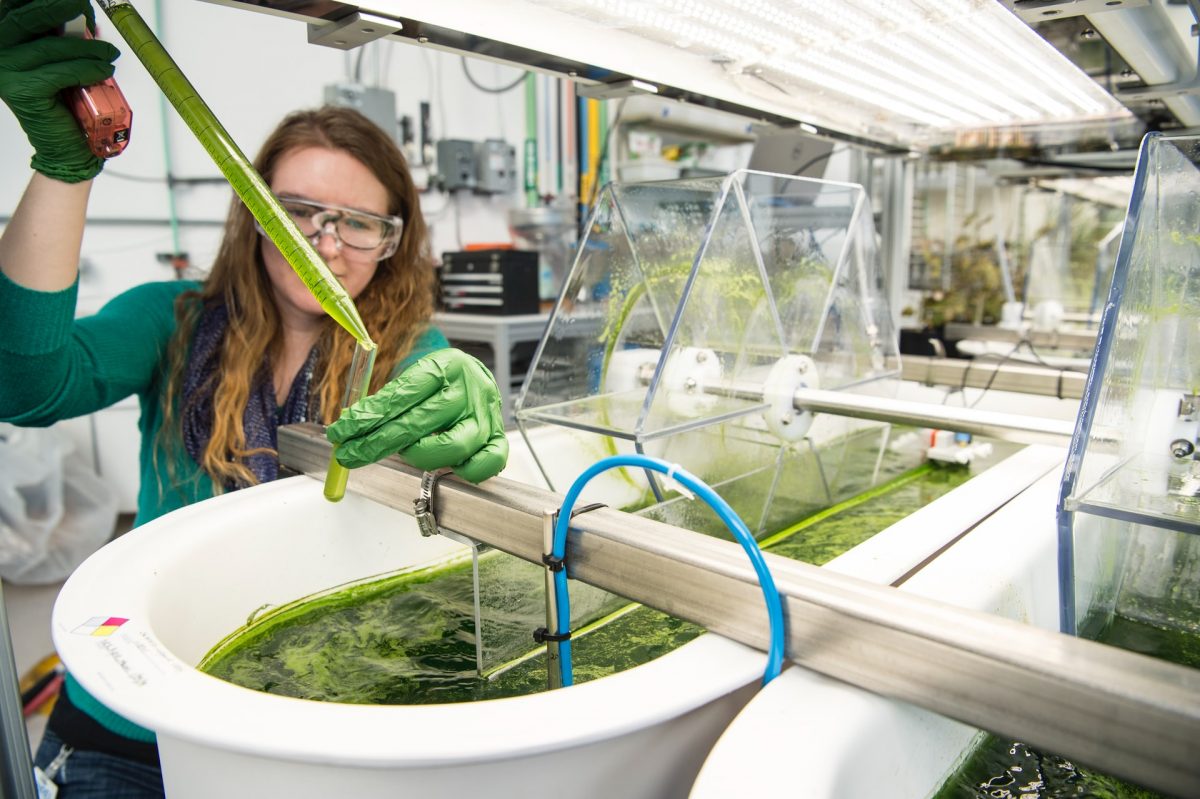

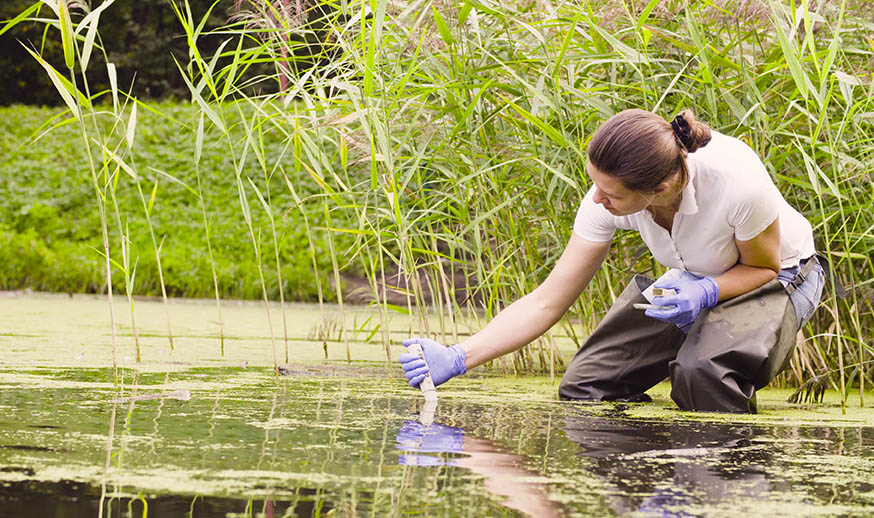
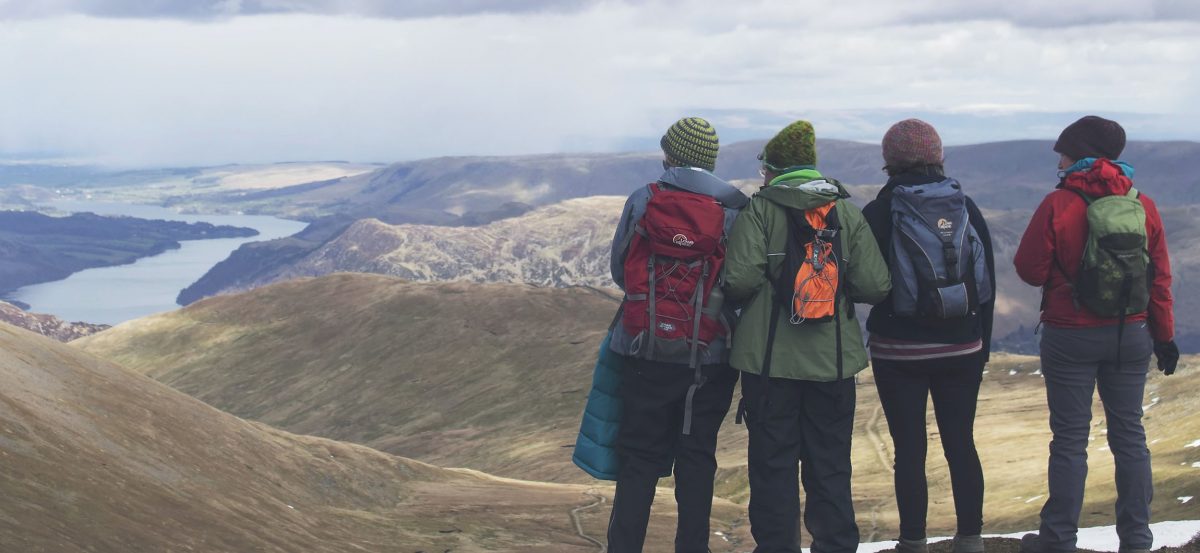
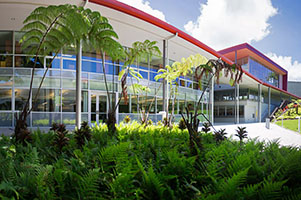
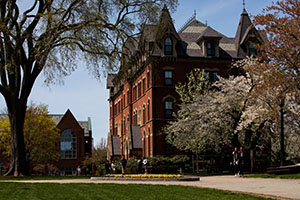 “I received my masters of science in Conservation Medicine at the Cummings School of Veterinary Medicine at Tufts. While this degree is non-thesis you still have a case study or research paper to present which can be upwards of 40 pages, but you also have the option to do your own original research and submit this for publication. There are a variety of opportunities to collaborate on research projects if you are looking to be published, you can also audit and take classes that the veterinary students are taking if you are interested. There are also a lot of laboratories that are happy to have students that are eager to learn.
“I received my masters of science in Conservation Medicine at the Cummings School of Veterinary Medicine at Tufts. While this degree is non-thesis you still have a case study or research paper to present which can be upwards of 40 pages, but you also have the option to do your own original research and submit this for publication. There are a variety of opportunities to collaborate on research projects if you are looking to be published, you can also audit and take classes that the veterinary students are taking if you are interested. There are also a lot of laboratories that are happy to have students that are eager to learn.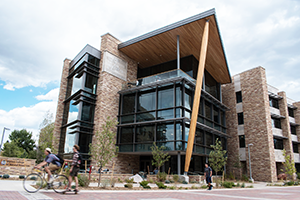 “Overall I had a very good experience at Colorado State University. I received my MS from this program in 2004 when the department was called Natural Resources Recreation and Tourism. They have since changed their name to Human Dimensions of Natural Resources. When I attended, the department was heavily focused on natural resource recreation and protected area management. I think the department has further diversified since it changed names but my understanding is that it’s still very strong in these areas.
“Overall I had a very good experience at Colorado State University. I received my MS from this program in 2004 when the department was called Natural Resources Recreation and Tourism. They have since changed their name to Human Dimensions of Natural Resources. When I attended, the department was heavily focused on natural resource recreation and protected area management. I think the department has further diversified since it changed names but my understanding is that it’s still very strong in these areas.